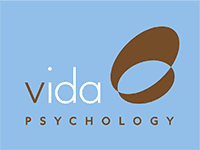Schema Therapy
Developed by Dr Jeffrey Young in the 1980’s initially to assist people with personality disorders. However, it has proven to be helpful for a range of mood disorders especially for people for whom other types of therapy has had little effect. It helps people understand why they behave the way the do, get in touch with their feelings, benefit from learning practical, active ways to make better choices for themselves in the future.
People’s schemas are perpetuated behaviourally through schema maintenance, schema avoidance and schema compensation.
Schema therapy looks at helping individuals identify and replace their Schemas (unhelpful self-defeating patterns including thoughts developed in childhood continuing to be repeated throughout our lives). These Schemas pose as obstacles in individuals getting their needs and goals met. Thus, preventing individuals from living a fulfilling life.
Schema Phases
1. Assessment: The person’s schemas are identified. Questionnaires are often administered to get a clear understanding and agreement of the schemas to address.
2. Emotional Awareness and experiential: This encourages individuals getting in touch with their schemas and most importantly teaches them how to identify them in their daily life.
3. Behavioural change: This becomes the focus of therapy. It requires the person to engages in replacing their negative behaviours and thoughts with healthy ones.

Schemas or Life Traps
1. Abandonment: This refers to the belief that is only a matter of time before those you love leave you. This could be through death, life circumstances or they prefer or love someone else. This results in individuals clinging onto people. In turn resulting in pushing them away as individuals may become jealous or angry about loved ones forming close relationships to others or be separated under normal circumstances.
2. Mistrust and Abuse: This refers to individuals believing people will hurt them or abuse them in some way (take advantage, cheat, lie, manipulate, or humiliate). This belief results in individuals putting up walls and not letting people in. Individuals will either become relationship avoidant or form superficial ones without the need to open up. In some instances individuals will find themselves in abusive relationship where it becomes a self-fulfilling prophecy.
3. Dependence: This refers to the belief individuals see themselves are being incompetent and unable to handle every day life situations and events: individuals believe they need someone else to help in making decisions, solve problems, etc. This schema results in allowing other individuals to rule their life.
4. Vulnerability: This refers to individuals believing a catastrophe is imminent and will strike at any time. This catastrophe can be a natural event, illness, financial hardship, or criminal event. The individual believes the world is not a safe place, resulting in constantly being on the look out.
5. Emotional Deprivation: This refers to individuals believing their need for love will never be met by others. No one cares, loves them enough or understands them. Individuals with this schema find themselves in relationships with people who are not emotionally available or individuals themselves become emotionally unavailable. This in turn results in being emotionally deprived.
6. Social Exclusion: This refers to individuals believing they are different to others and thus feel isolated from the rest of the world. Individuals often believe they are ugly, sexually undesirable, boring, etc.
7. Defectiveness: This refers to individuals believing they are defective and once people get close to them they would be exposed as such. Individuals struggle believing someone would love them or value them.
8. Failure: This refers to individuals believing they will inevitably fail or they are fundamentally inadequate relative to their peers. Individuals tend to perpetuate this schema by exaggerating their failures or by engaging in behaviours they know will only result in failing.
9. Subjugation: This refers to individuals believing their needs and wants don’t matter. They prioritise the needs of others over their own for the sake of pleasing them. Usually this is driven by guilt, fear of being abandoned, avoiding conflict or anger from others or being punished. This in turn results in surrendering control to others. Individuals with this schema find themselves in controlling relationships or in relationships with individuals who are not able to give in return.
10. Unrelenting Standards: This refers to individuals placing extremely high expectations on themselves resulting in believing nothing is ever good enough. Individuals are often judgemental of others as well. Individuals with this schema will be perfectionists, highly self critical, have rigid rules such as “shoulds” and be concerned with time and being productive. These individuals generally struggle with being relaxed as they see it as a waste of time.
11. Entitlement: This refers to individuals believing their needs and wants and themselves are more important and superior to others. They feel special and believe they can say and do whatever they want whenever they want. As children these individuals were spoilt and as adults they get angry when they don’t get what they want when they want it.
Reference:
1. Schema Therapy Centre of New Orleans
2. Young, J.E., Klosko, J.S. (2011). Reinventing Your Life: The Breakthrough Program to End Negative Behaviour…. And Fell Great Again.


